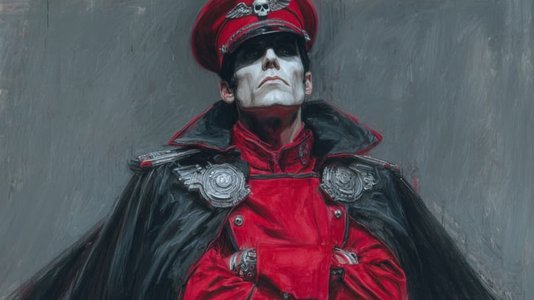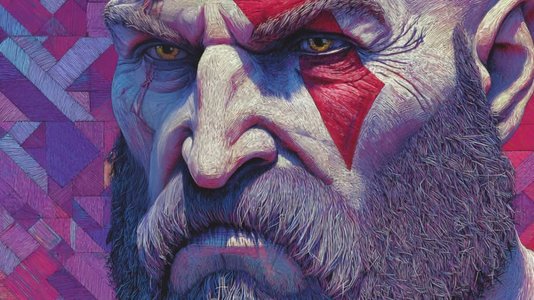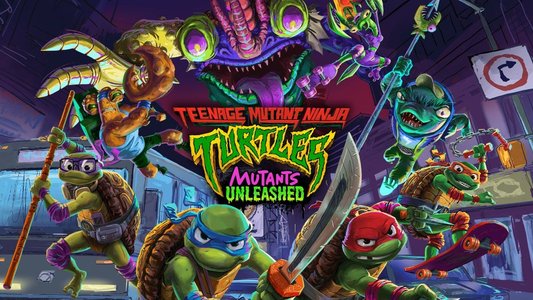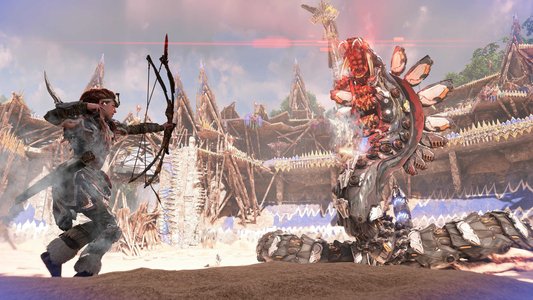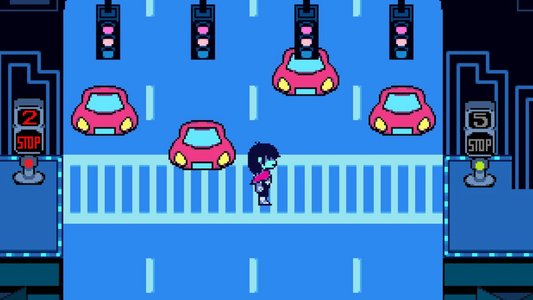[In this reprinted #altdevblogaday-opinion piece, Insomniac Games' Lisa Brown explains how liberal arts colleges can be an option for aspiring game designers, sharing personal examples from her own liberal arts educational background.] For a high school graduate who is looking to eventually get into games, there are plentiful options for higher education, and a liberal arts school is but one. I will touch on why I think it's a useful route for blossoming game designers, and root up some examples of how my undergraduate experience has come back to help me in my career. Disclaimers Now, since this is an education post, I feel I must make all the usual disclaimers: There is no one perfect educational route for anyone. You should find out what works best for you. It's not the degree that matters, it's the what you can do. Education is what you personally make of it, whether you go to a big name school or are self-taught. The more important thing is not what you learn, but learning how to learn. Did I hit them all? Okay, now that that's out of the way, let's move on. What is a Liberal Arts College?  Centre College, my undergraduate alma mater, is a small liberal arts school in Kentucky. A liberal arts college is an undergraduate education institution that focuses on giving students a broad exposure to many disciplines in addition to his or her chosen major. This is not the same thing as a liberal arts degree, which seems to be a kind of generalist degree at some schools, and which I don't know anything about. Liberal arts education contrasts with a technical or professional curriculum, which instead focuses on a particular skill or preparing the student for a particular career path. So basically, students at liberal arts schools still have majors; it's just that the math majors also take courses in arts and humanities, and the art students still take math and science, and so on. Frequently, as in my own case, liberal arts students go on to graduate school to do more focused education. If you're curious for more details about liberal arts schools, head on over to Wikipedia. 20/20 Hindsight So what does a liberal arts education have to do with game development? I must make it clear, I did not go to college to become a game designer. I didn't even figure out I wanted to be a game designer until well afterwards (I'll save that story for my inevitable "How did Lisa Get Into Games" article). I showed up at undergrad having no idea what I wanted to do with my life, but knowing I wanted to double-major in something, because I was insatiably curious and wanted to learn EVERYTHING. A career in games was honestly the last thing on my mind. However, when I later got into game design, I realized that I had been really, REALLY well-prepared for the job by my undergraduate liberal arts education.
Centre College, my undergraduate alma mater, is a small liberal arts school in Kentucky. A liberal arts college is an undergraduate education institution that focuses on giving students a broad exposure to many disciplines in addition to his or her chosen major. This is not the same thing as a liberal arts degree, which seems to be a kind of generalist degree at some schools, and which I don't know anything about. Liberal arts education contrasts with a technical or professional curriculum, which instead focuses on a particular skill or preparing the student for a particular career path. So basically, students at liberal arts schools still have majors; it's just that the math majors also take courses in arts and humanities, and the art students still take math and science, and so on. Frequently, as in my own case, liberal arts students go on to graduate school to do more focused education. If you're curious for more details about liberal arts schools, head on over to Wikipedia. 20/20 Hindsight So what does a liberal arts education have to do with game development? I must make it clear, I did not go to college to become a game designer. I didn't even figure out I wanted to be a game designer until well afterwards (I'll save that story for my inevitable "How did Lisa Get Into Games" article). I showed up at undergrad having no idea what I wanted to do with my life, but knowing I wanted to double-major in something, because I was insatiably curious and wanted to learn EVERYTHING. A career in games was honestly the last thing on my mind. However, when I later got into game design, I realized that I had been really, REALLY well-prepared for the job by my undergraduate liberal arts education.
 According to this cryptic diagram, the original liberal arts were grammar, dialectic, rhetoric, arithmetic, geometry, music, and astronomy. But that was like the 5th century.
According to this cryptic diagram, the original liberal arts were grammar, dialectic, rhetoric, arithmetic, geometry, music, and astronomy. But that was like the 5th century.
In game design, you pull experience and knowledge from many different fields: art, math, technology, science, humanities, literature, and so on. Having an understanding of art and an understanding of how programmers think are the oft-cited examples of needing interdisciplinary skills, but there are many others. For example, knowing a bit of psychology helps you understand how to anticipate, guide, and motivate your players. Knowledge of history, religion, and anthropology can help you create fantastic yet believable worlds. Experience in math helps immensely with balancing and tuning. Thus, an education that focuses on broad exposure to many disciplines can yield loads of great stuff for the making of a game designer. This episode of Extra Credits does a fine job of touching on the many different areas that can help a game designer, so I'd recommend checking it out if you haven't seen it. Looking back, liberal arts undergrad may have been the perfect route for me to have taken to get to game design. Of course, hindsight is always 20/20, but I'm hoping that my hindsight might be able to turn into foresight for someone else. If you want to be a game designer, and you also want to pursue a higher education, a games-specific program is not your only option. Consider investigating a liberal arts school and seeing if it fits your style, and if so, know that you will be gaining applicable knowledge and skills that can later be used in games. Personal Examples So let's get into the nitty gritty examples of what I learned in my liberal arts education that has had a direct application in my day-to-day work as a game designer. Originally I was going to use an example from every single class I took in my four-year undergraduate career, but then I realized that that would take like FOREVER. So I'm compacting things a bit for readability, but do know that whether in the course material directly, or indirectly via some skill or experience learned via the course, I really do feel like everything I studied in undergrad has resurfaced more than once throughout my career making games. For an example of what an undergraduate liberal arts education experience might look like, here are all the classes I took over four years. I double majored in visual art (with a focus on hot glass) and computer science, so I've divided my classes into those two columns, plus one for everything else. Note that I included math classes in the computer science column, because most of them were requirements for the major, and also it made my table columns a little more even.
Art | Computer Science | Everything Else |
|---|---|---|
Drawing I | Intro to Computer Science | Intro to Physical Anthropology |
Drawing II | Intermediate Programming and Data Structures | Personal Safety |
Painting I | Differential Calculus | Intro to Humanities I |
Hot Glass I | Computer Organization | Intro to Psychology |
Survey of Western Art I | Theoretical Foundations of Computer Science | Introduction to Shakespeare |
Survey of Western Art II | Discrete Mathematics | Drama Practicum – Prop Design and Construction |
Painting II | Theory/Construction of Compilers | Health and Physical Fitness |
Hot Glass II | Operating Systems | Development of Modern World II |
Painting III | Design & Analysis of Algorithms | Intro to Humanities II |
Advanced Glass Blowing | Database Systems | World Religions |
Art & History of Glass Furnaces (wherein we actually built a new glass furnace) | Building a Beowulf Cluster | Biblical History |
Hot Glass III | Drama Study Abroad – Regional Theatre (wherein we went all over England and saw 30 plays in 3 1/2 weeks) | |
Northern Mannerist & Baroque Art | Chemistry and the Modern World | |
Sculpting & Hot Formed Glass | Drama Practicum – Prop Design and Construction | |
Hot Glass IV | Drama Practicum – Electrician and Lightboard Operator |
Alright, time for some specifics examples… Painting
 Process shots of a painting I did of my fish. Iteration!
Process shots of a painting I did of my fish. Iteration!
Basic art stuff - composition, color theory, all that sort of thing. I not only use it when designing spaces, but when communicating with my artists.
Iteration - oil painting was the first time I really grasped the idea of iterating on something as a method. In oil painting, you work with lots and lots of layers. So you slap something down rough to begin with, and then you add another layer of paint, and then another and another, until you get it closer and closer to the final product. Sometimes, you've been working in a ton of layers on one part and it's just not working with the whole, so you paint over it, no fear!! (I'll admit, it took me awhile to get comfortable with that last bit)By the time I got into game development, I was well-practiced with the idea of iteration, so the process of making something quickly, trying it, changing it, trying it again, changing it, for a billion iteratio
No tags.




